UAE To Send Delegation To Iran Soon, Says Senior Official
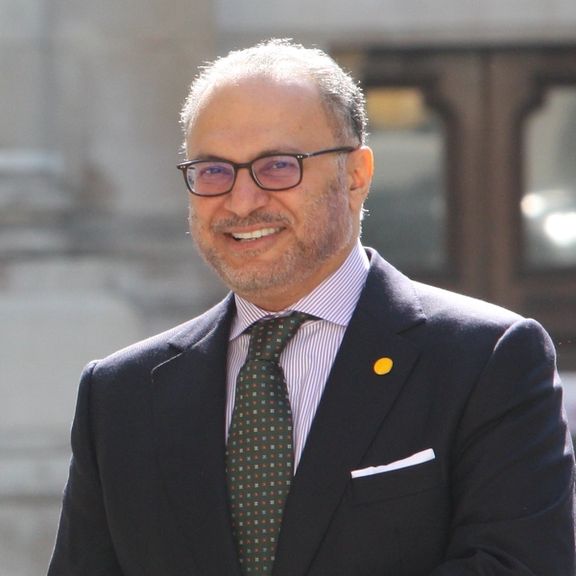
A senior Emirati official said on Tuesday the United Arab Emirates would soon send a delegation to Iran as part of efforts to improve ties with rival Tehran.

A senior Emirati official said on Tuesday the United Arab Emirates would soon send a delegation to Iran as part of efforts to improve ties with rival Tehran.
"The sooner the better," Anwar Gargash, diplomatic adviser to the UAE president, told reporters when asked when a UAE delegation would hold talks in Tehran.
Asked whether the UAE was coordinating with Saudi Arabia on its moves on Iran, he said they were keeping its regional allies "in the picture"
"There is a recognition by the Iranians to rebuild bridges with the Gulf. We are picking that up positively," he said, adding that Abu Dhabi still shared concerns about Iran's regional activities.
The government of President Ebrahim Raisi has been emphasizing the need to improve relations with regional countries and held meetings with Saudi Arabia in April, but so far there has been breakthrough.
As the future of nuclear talks with Iran remain uncertain, the UAE might be hedging its bets to ensure its own security, being in the proximity of Iran. If talks succeed, Iran will get a financial windfall and come out of isolation somewhat. If the talks fail, tensions will spike in the region.
After the hasty US withdrawal from Afghanistan, there are also doubts about Washington's commitment to the region.
With reporting by Reuters
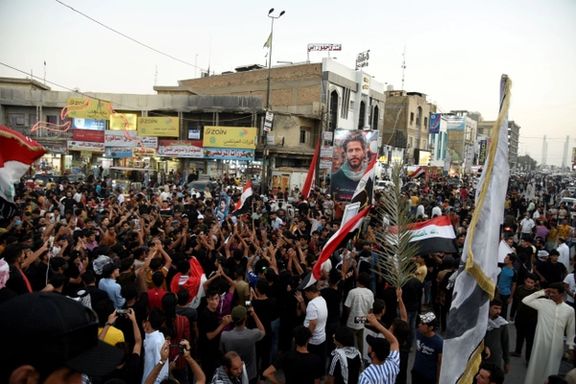
Shi'ite cleric Moqtada al-Sadr's party is the biggest bloc in Iraq's parliament with 73 seats in the 329-seat house, final results announced Tuesday show.
The Taqaddum Party, which draws support from minority Sunni Muslims, won 37 seats. Former Prime Minister Nouri al-Maliki's State of Law group won 33 seats, and the Kurdistan Democratic Party (KDP) secured 31, according to the results cited by state media.
The results were broadly in line with preliminary figures released in the days after the October 10 election, and unlikely to alter calculations much as politicians negotiate on the makeup of a new government.
Pro-Iran groups who performed poorly have refused to accept the results. They tried to change the outcome by protests, which the government ignored and the United Nations confirmed the general accuracy of the results.
Turnout reached 44%, the commission said, revised up from the 43% preliminary figure but still lower than in the last election in 2018.
More than 9.6 million people cast their ballots in the Oct. 10 vote, where at least 167 parties and more than 3,200 candidates competed for the parliament's 329 seats, the commission said.
Reporting by Reuters
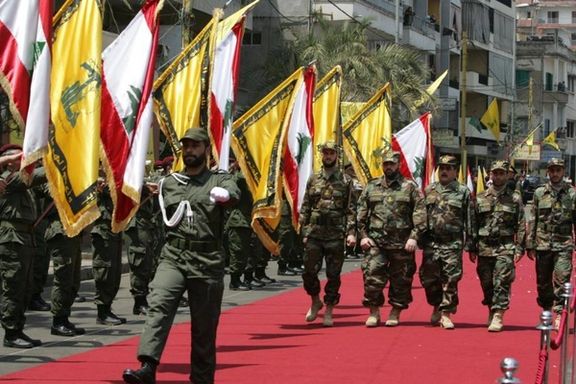
China, Russia and Iran pose three of the biggest threats to the UK in a fast-changing, unstable world, the head of Britain's foreign intelligence agency said Tuesday.
MI6 chief Richard Moore said the three countries and international terrorism make up the "big four" security issues confronting Britain's spies.
In his first public speech since becoming head of the Secret Intelligence Service in October 2020, Moore said China was the agency's single greatest priority as Beijing increasingly backs "bold and decisive action" to further its interests.
Moore said Iran also poses a major threat, and uses the political and militant group Hezbollah - "a state within a state" to fuel political turmoil in Lebanon and other neighboring countries.
He argued that Britain's spies must give up some of their deep-rooted secrecy and seek help from technology firms to win a cybersecurity arms race that is giving hostile countries and groups ever more capacity.
Moore said working with the private sector is a "sea change" for an organization enmeshed in secrecy. Until 1992, Britain's government refused to confirm the existence of MI6.
Report by AP

Iran’s capital Tehran on Tuesday registered red air quality alert and ranked as the world’s fourth most polluted city where all population groups are at risk.
The air quality index stood at 162, considered to be “unhealthy” by world standards. This means the degree of the pollution hanging over the city is so high that it is dangerous for all groups, including healthy people.
All ten top-ranking cities on Tuesday were in Asia with two Indian and one Pakistani cities at the top three spots, followed by Tehran.
Mojtaba Khaledi, a spokesman for emergency services, said that due to air pollution calls for assistance have increased by 28 percent.
Iran’s capital and other large cities grapple with pollution most of the year and even occasional rains have a short impact on improving air quality. Most private and public vehicles are old, with three-decade-old technology because of long-running economic problems and government controls.
A new problem added in the past few years is burning of mazut, a heavy diesel fuel, which is banned in most of the world. Iran’s natural gas production is declining, and power plants are forced to use the dirty fuel. The country has the second largest gas reserves in the world, but lack of investment and technology are gradually reducing output.

Iran is planning its next budget on the assumption that US economic sanctions will continue, but is forecasting more than one million barrels p/d oil exports.
In a meeting with Foreign Minister Hossein Amir-Abdollahian the head of Planning and Budget Organization Masoud Mirkazemi expressed hope that US sanctions will be lifted but said the budget is being planned on the assumption that sanctions will remain in place.
Iran’s new budget will go into effect in March 21, 2022 when the new Iranian calendar year starts.
US sanctions imposed in 2018 by former President Donald Trump, who withdrew from the Obama-era nuclear deal with Iran, have crippled normal and legal oil exports, denying Iran roughly 50 percent of its budget income.
The government has resorted to printing money and borrowing that have led to 50 percent annual inflation and a ninefold decline in the value of the national currency compared to 2017.
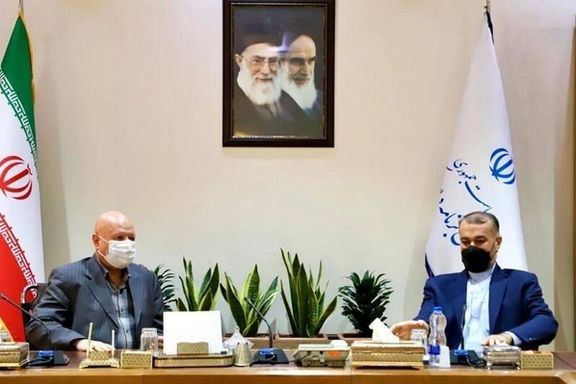
However, illicit oil exports said to be going mainly to China have increased since September 2020 and provide Iran with an undisclosed amount of revenue. But the nature of the illicit trade would certainly reduce the amount of foreign currencies Iran can receive. Middlemen who facilitate such shipments of oil make hefty profits and Iran must charge much less than global oil prices to entice buyers.
The Iranian Labour News Agency, ILNA reported on Monday that revenues forecast in the budget draft are based on exporting 1.2 million barrels of oil per day. Last year’s budget was also based on the same calculation, but clearly Iran this year has grappled with a 50-percent budget deficit. The reason is that with sanctions in place Tehran was never able to sell that amount of oil with market prices.
President Ebrahim Raisi’s administration needs more income it cannot get from oil exports, yet it has pledged to print less money to control inflation. To deal with this economic quandary, the president on Tuesday ordered his ministers to accelerate the sale of “unwanted government assets”.
Iran’s government is the biggest owner of industrial and financial companies in the country, with their huge assets, after more than four decades of implementing a quasi-state-controlled economic model. But selling assets amid a lack of money in the hands of banks and investors is not an easy or profitable venture. A grim political and economic outlook is another factor inhibiting government efforts to raise money.
Iran is currently engaged in nuclear talks with the world powers that are meant to bring back the United States in to the 2015 nuclear agreement, the JCPOA. This would lift the most damaging sanctions and provide a financial lifeline to Iran. Both foreign and Iranian media and observers are not very optimistic about a quick and positive outcome.
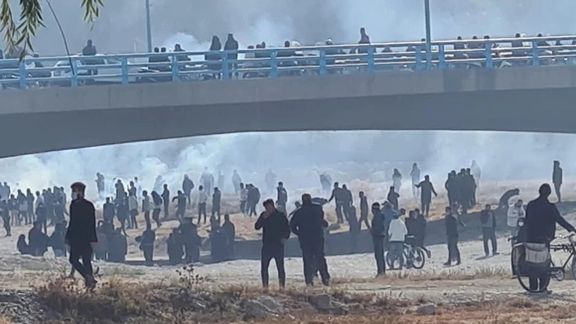
A former revolutionary says Supreme Leader Ali Khamenei is personally responsible for the "the atrocities committed" against peaceful protesters in Esfahan.
In a statement published on the ‘Kalemeh’ Telegram social-media channel Sunday, Abolfazl Ghadiani wrote that “all of the suppressive bodies…and their commanders are responsible for the [attack on] the peaceful, civil and non-violent protest of the people of Esfahan, but the central figure responsible for this aggression and the atrocities committed is Iran's dictator Ali Khamenei who must be held accountable.”
Ghadiani who was a political prisoner both during the monarchy and the Islamic Republic, blames the government for mismanaging water resources and accused security forces of setting fire to the tents of farmers protesting against a lack of water in the dry riverbed of Zayandeh Roud Thursday.
Ghadiani, who was imprisoned on charges of "propaganda against the regime" and "insulting the Supreme Leader" after the disputed 2009 presidential election, said security forces had “wounded a large number of protestors.”
Hasan Karami, a police commander, said Sunday that 2-3,000 "opportunists" had joined Friday's protests and that 67 had been arrested. The United States-based Center for Human Rights in Iran said Monday that at least 214 including 13 children had been arrested in total during the “recent protests.”
Social media users have posted photos of people with shotgun pellet injuries to their backs, legs and faces, including an old man with multiple pellet injuries to his back and a young boy who they claim lost both his eyes.
Iran International TV has obtained radiology images of a protester with tens of pellets embedded in his head, neck, and upper torso.

A medical official told Iranian state television Saturday that 40 people had been treated for eye injuries sustained during the protests, with 19 hospitalized. He did not specify how the injuries were sustained.
Chief Justice Gholam-Hossein Mohseni-Ejei said in a meeting of the judiciary's supreme council Monday that people had a right to look for solutions to their problems but warned them to be wary of the "enemies’ moves" and refuse to allow them to "infiltrate their ranks.”
He suggested that "ignorant people, ill-wishers and agents of foreign powers" had taken advantage of the protests seeking to "disturb people's peace and security."
Brigadier-General Abolfazl Shekarchi, spokesman of the armed forces, said that the “enemy wrongly thinks that the citizens of the Islamic Republic have turned their backs on it, do not want the authorities, and seek regime change."
Kayhan newspaper reported Sunday that "America's foot soldiers" had perverted the water protests to "sow unrest and reap sanctions" ahead of Vienna nuclear talks, which resumed Monday.